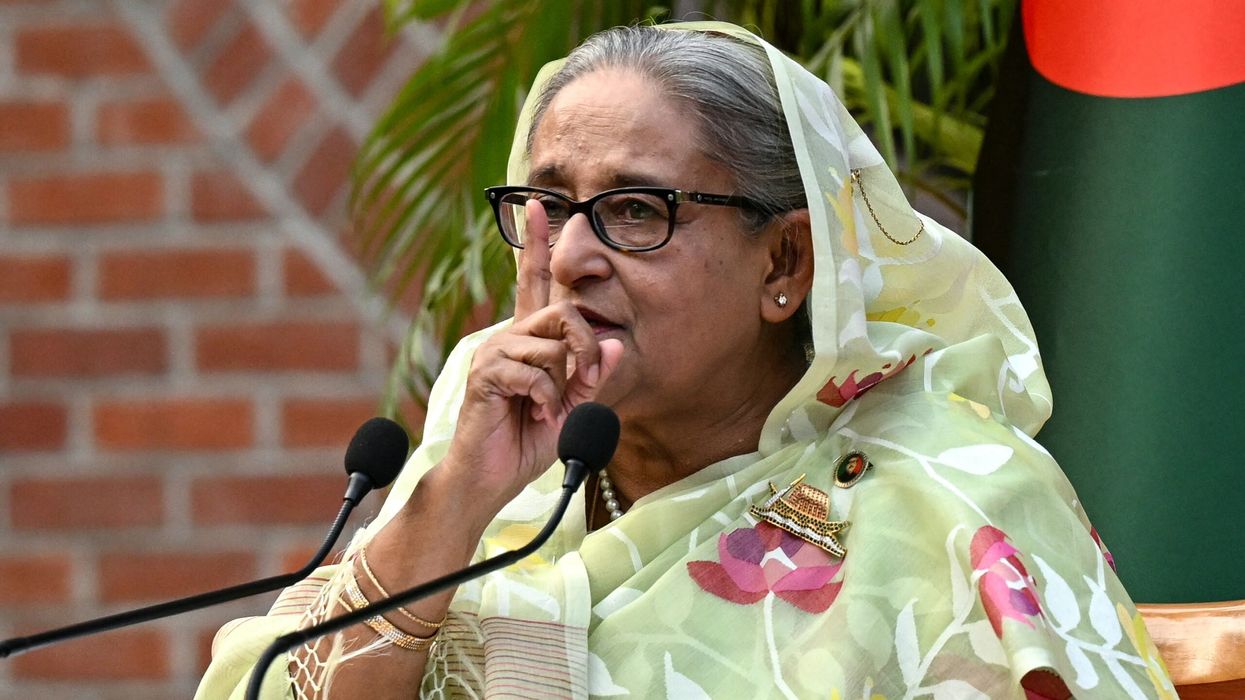Little more than two years after winning a landslide election victory, British Prime Minister Boris Johnson faces a no-confidence vote among Conservative MPs following months of growing pressure.
Here are key questions around the crisis confronting the UK leader:
Where did it go wrong?
Brexit cheerleader Johnson joined other Tory MPs in ousting Theresa May in mid-2019. After taking over, he won voters' overwhelming backing that December on a pledge to "get Brexit done".
Scandals soon emerged, including over who paid for a lavish makeover of his Downing Street flat and an expensive holiday to a private Caribbean island. But they appeared to do little to dent his popularity.
Things turned sour with many of his MPs last year, when Johnson tried to change parliament's disciplinary rules to get ally Owen Paterson off the hook after he was found to have breached lobbying rules.
Paterson, giving in to a storm of protest, then quit as an MP, forcing the Conservatives to abandon the rule change and resulting in a by-election in his previously safe seat. They lost.
The "Partygate" scandal blew up soon after. In April, Johnson became the first prime minister found to have broken the law while in office.
Although he was only fined once by police for attending a Covid lockdown-breaching event, a damning internal report also found he presided over a culture of rule-breaking parties in Downing Street.
What has been the reaction?
Johnson, long known for defying political gravity, has been left fighting for his political survival.
The 57-year-old looked to have emerged largely unscathed from his much-criticised handling of the early stages of the Covid pandemic, primarily thanks to a successful vaccine programme.
And early last year, his Conservatives swept to an unprecedented by-election victory in Hartlepool, northeast England, once again plundering votes in the main opposition Labour party's heartlands.
But even before Partygate erupted at the end of 2021, signs of growing discontent with his government, particularly among traditional Tory voters, were apparent.
Last June, the Tories suffered a major upset and lost the Chesham and Amersham by-election to the Liberal Democrats. Six months later it happened again in Paterson's even safer North Shropshire seat.
Meanwhile, hundreds of Conservative councillors were voted out of office in local polls last month.
How bad is it for Johnson?
Opinion polls have shown deep public disapproval over Partygate and Johnson's handling of it, with large majorities saying he knowingly lied about the scandal and should resign.
A snap survey Monday, taken after enough Tory MPs voiced their discontent to trigger a confidence vote, found nearly 60 percent of people thought they should vote him out of the party leadership.
Johnson's own personal ratings have plummeted to unprecedented lows, as he faced open calls to quit from his own side as well as opposition parties.
He was booed by sections of an ardently patriotic crowd gathered outside London's St Paul's Cathedral, ahead of a religious service for Queen Elizabeth II's Platinum Jubilee on Friday.
Meanwhile, the Conservatives have now lagged behind Labour for months in multiple polls.
"Voters feel that they used to be able to have a bit of a laugh with this prime minister; now they feel that Boris Johnson is laughing at them," Conservative pollster James Johnson -- no relation -- told Sky News on Monday.
A recent poll he conducted found Johnson had a negative approval rating in every single constituency in England, Scotland and Wales.
What happens now?
Conservative MPs will decide Johnson's fate by secret ballot Monday evening in a parliamentary committee room.
The votes will be immediately counted, with an announcement to follow at 2000 GMT.
If Johnson wins a simple majority -- half the 359 votes cast plus one -- the embattled leader cannot be challenged again for a year.
However, the Tory party says it could change its rules to allow another contest sooner.
If Johnson loses, a party leadership contest follows in which he cannot stand. He can stay on as prime minister in the meantime.
Some commentators believe that if Johnson's victory is only by a small margin, his authority may be fatally undermined.
He and his supporters hoped an emphatic victory could draw a line under the scandals.
Courtesy: AFP






 John Dramani Mahama welcomes Modi on his arrival in Accra last Wednesday (2)
John Dramani Mahama welcomes Modi on his arrival in Accra last Wednesday (2) South Africa’s president Cyril Ramaphosa, Brazil’s president Luiz Inacio Lula da Silva, Modi and China’s premier Li Qiang at the Brics summit last Sunday (6)
South Africa’s president Cyril Ramaphosa, Brazil’s president Luiz Inacio Lula da Silva, Modi and China’s premier Li Qiang at the Brics summit last Sunday (6)












